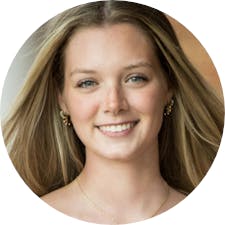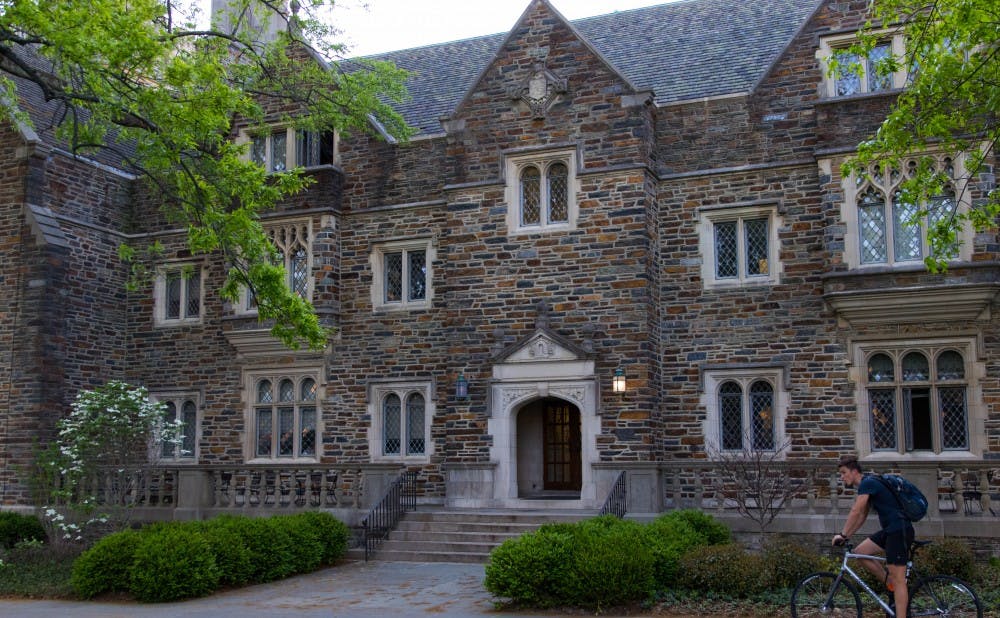Arts & Sciences Council discussed the issue of academic breadth in undergraduate liberal arts education during its second meeting of the academic year.
Council members, Duke Student Government representatives and other interested faculty present at the meeting discussed whether students should experience some degree of autonomy over their academic path, debating the value of making students study things that they may not want to study.
The discussion was held at the request of the Trinity Curriculum Development Committee as it prepares to present a proposal for a new curriculum for Trinity College undergraduate students to the Council in January.
“The Curriculum 2000 matrix is a somewhat unusual vehicle for managing the tension between productive constraints and the desirable flexibility in a student's academic path,” said Joshua Socolar, professor of physics and chair of the Council. “Other options might include anything from allowing students to take whatever they want as long as they complete a major, to requiring a very specific set of courses that every student has to take.”
The Council’s agenda this year is focused on developing and approving a new undergraduate curriculum for students in Trinity College to replace Curriculum 2000. The TCDC formally drafts and proposes curriculum plans, while the Council offers feedback and approves the final proposal. The Council’s goal is to approve the new curriculum in spring 2024 and launch it in fall 2025.
When the TCDC was formed in 2021 to begin reviewing the curriculum, they were asked to “think big.” There are no formal requirements on the curriculum that the TCDC creates and the Council approves. It is possible that the new curriculum will implement completely new academic requirements, making the current Areas of Knowledge and Modes of Inquiry requirements a thing of the past.
In an update to the Council prior to the meeting, the TCDC asked for Council feedback on the strengths and weaknesses of requiring students to take courses across categories of academic disciplines versus across categories of knowledge, methods or skills.
Senior Isaiah Hamilton, president of DSG, said it may be a good idea to leave the decision up to students and “empower [them] to curate what their academic journey looks like for themselves.”
During the committee’s discussion, Hamilton proposed a system in which students could choose between achieving academic depth by studying across disciplines or by studying across methods or skills depending on their interests.
Junior Preston Nibley, associate vice president of DSG’s Academic Affairs committee, raised concerns about the “gamification” of the current curricular system, which he associated with the certain degree of “pain” that comes from taking classes that one has no interest in.
“It's probably a better world if everybody's read 'War and Peace' and can take a derivative. Both of those things are arguably painful, depending on who you are,” he said.
The idea of “coercing” or “forcing” students to take certain courses was a focus of the Council’s discussion.
Scott Huettel, professor in the department of psychology and neuroscience and chair of the TCDC, emphasized that this element of coercion can also protect students who want to explore passions across a wide range of academic disciplines but experience pressure to focus on one area.
This type of forced exploration can also act as a safeguard against “early identity foreclosure,” in which students decide very early on what academic discipline they want to pursue and never explore anything else, added David Malone, professor of the practice of education.
However, students may not be as closed off to exploration as people may think, said junior Heather Raslan, vice president of DSG’s academic affairs committee. From her perspective, Duke students make a significant financial investment to be able to study here, one that they would not make if they did not buy into Duke’s model of interdisciplinary and liberal arts education.
Eliana J. Schonberg, associate professor of the practice in the Thompson Writing Program, voiced the concern that “determining categories or terms that are going to stand the test of the next 20 years” is “probably impossible” due to rapid innovation.
“Many of the problems that we have with Curriculum 2000 come from the categories that made a lot of sense in 2000 no longer fitting well with how we're thinking about what we teach and what we've learned,” she said.
Other faculty members present emphasized the importance of research in the undergraduate curriculum.
Get The Chronicle straight to your inbox
Signup for our weekly newsletter. Cancel at any time.

Holly Keegan is a Trinity junior and a senior editor of The Chronicle's 120th volume.

